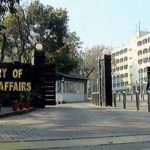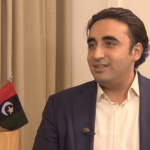UNITED NATIONS, Sep 22 (APP): World leaders gathered at the UN in a virtual format Monday adopted a declaration honouring the multilateral framework put in place by its founders in 1945 and pledging to better live out the promise to save succeeding generations from the scourge of war.
“Declaration on the commemoration of the 75th anniversary of the United Nations,” the text lays out 12 succinct commitments to reanimate global resolve: leave no one behind, protect the planet, promote peace, abide by international law, place women and girls at the centre, build trust, improve digital cooperation, upgrade the United Nations, ensure sustainable financing, boost partnerships, work with youth, and, finally, be prepared.
“We are not here to celebrate,” world leaders said, through the declaration, which the General Assembly unanimously adopted. “Our world is not yet the world our founders envisaged 75 years ago.
“Our challenges are interconnected and can only be addressed through reinvigorated multilateralism,” the declaration emphasized. Acknowledging that COVID-19 caught them off-guard, world leaders agreed it has served as a wake-up call for improving preparedness.
“What we agree today, will affect the sustainability of our planet as well as the welfare of generations for decades,” the declaration said, committing to uphold it in the spirit of “We the Peoples”.
Born out of the horrors of World War II, the United Nations was established to save succeeding generations from the scourge of war — words enshrined in the U.N. Charter.
The declaration recalls the UN’s successes and failures over more than seven decades and vows to build a post-pandemic world that is more equal, works together and protects the planet.
Even at times of great tension, the declaration said, the U.N. promoted decolonization, freedom, development, human rights and equality, “and worked to eradicate disease.”
And it “helped mitigate dozens of conflicts, saved hundreds of thousands of lives through humanitarian action and provided millions of children with the education that every child deserves.”
As for disappointments, the declaration says the world “is plagued by growing inequality, poverty, hunger, armed conflicts, terrorism, insecurity, climate change and pandemics.”
It says the poorest and least developed countries are falling behind, decolonization is not complete and people are forced to make dangerous journeys in search of refuge.
“Our challenges are interconnected and can only be addressed through reinvigorated multilateralism,” it added.
The adoption followed a clarion call by United Nations Secretary-General Antonio Guterres to preserve the longest period in modern history without a military confrontation among the world’s major powers.
“This is a great achievement of which Member States can be proud,” he said, addressing an Assembly Hall sparsely populated, due to pandemic safety restrictions. “A third world war — which so many had feared — has been avoided.”
As for Pakistan concerns, Foreign Minister Shah Mahmood Qureshi said the United Nations was hoped borne of the ashes of unmitigated suffering and misplaced notions of superiority.
The organization addressed the need to save succeeding generations from the scourge of war and to reaffirm the fundamental rights of men and women. It has helped prevent the kind of destruction visited upon humanity twice within a generation, advanced arms control, facilitated decolonization and addressed threats to the environment.
“But our euphoria must not blind us to its failings,” he said, adding that the organization is only as good as its Member States.







